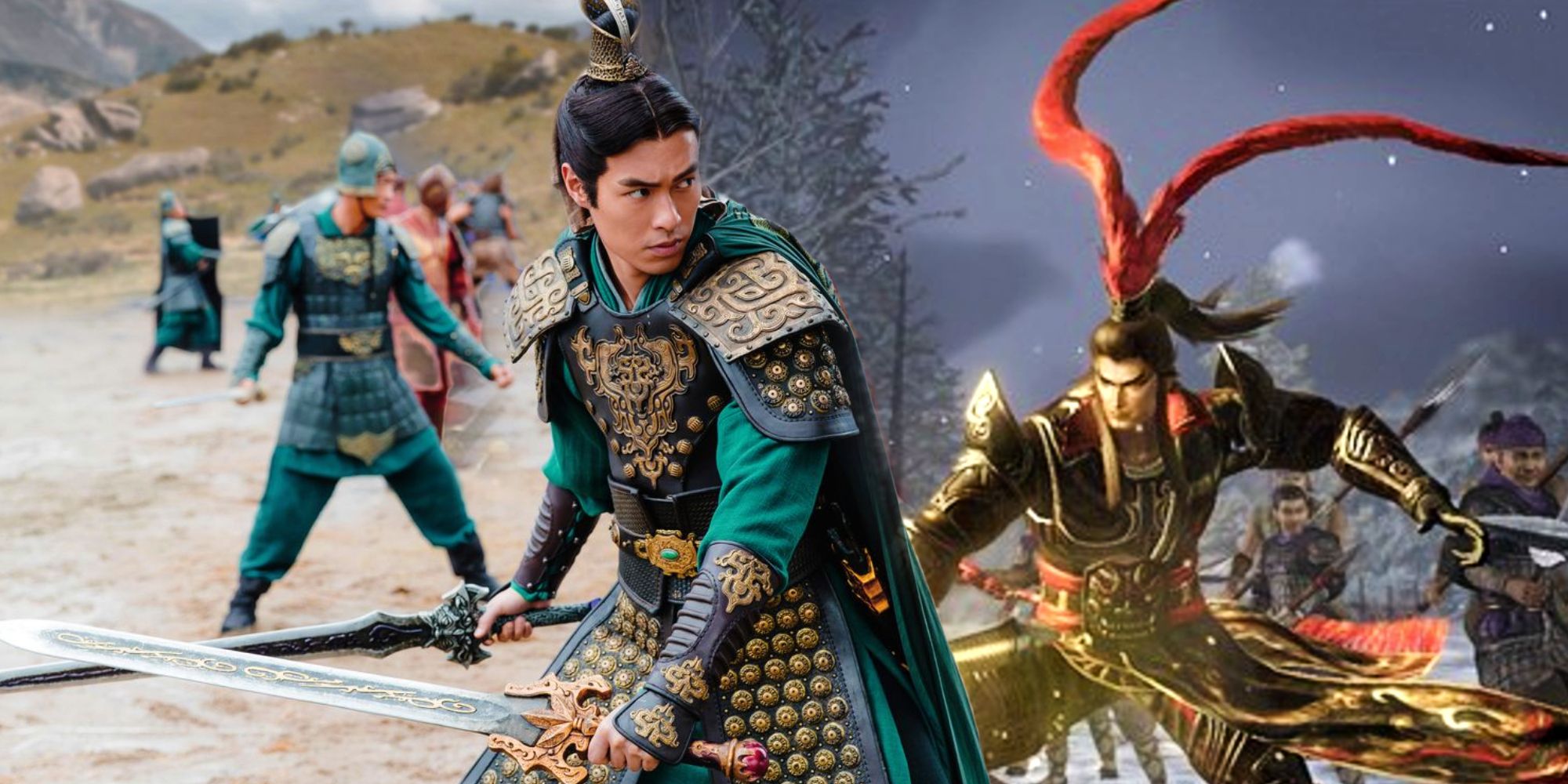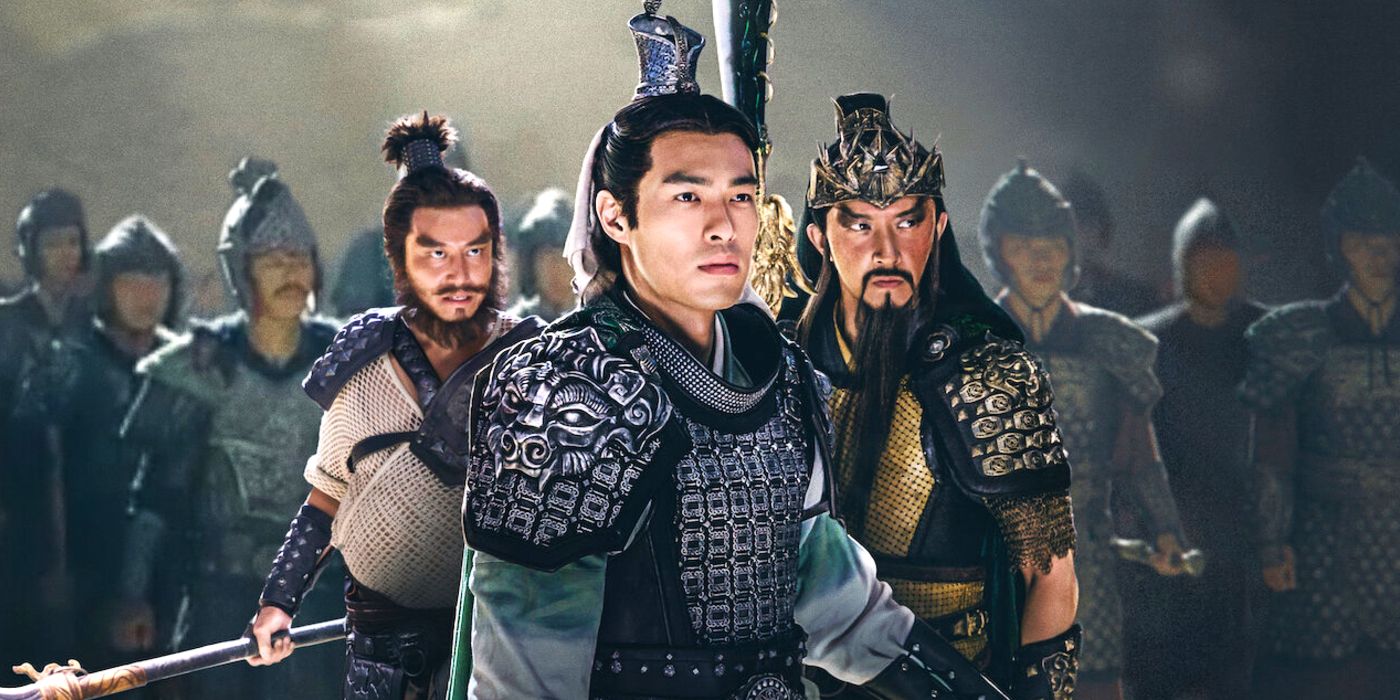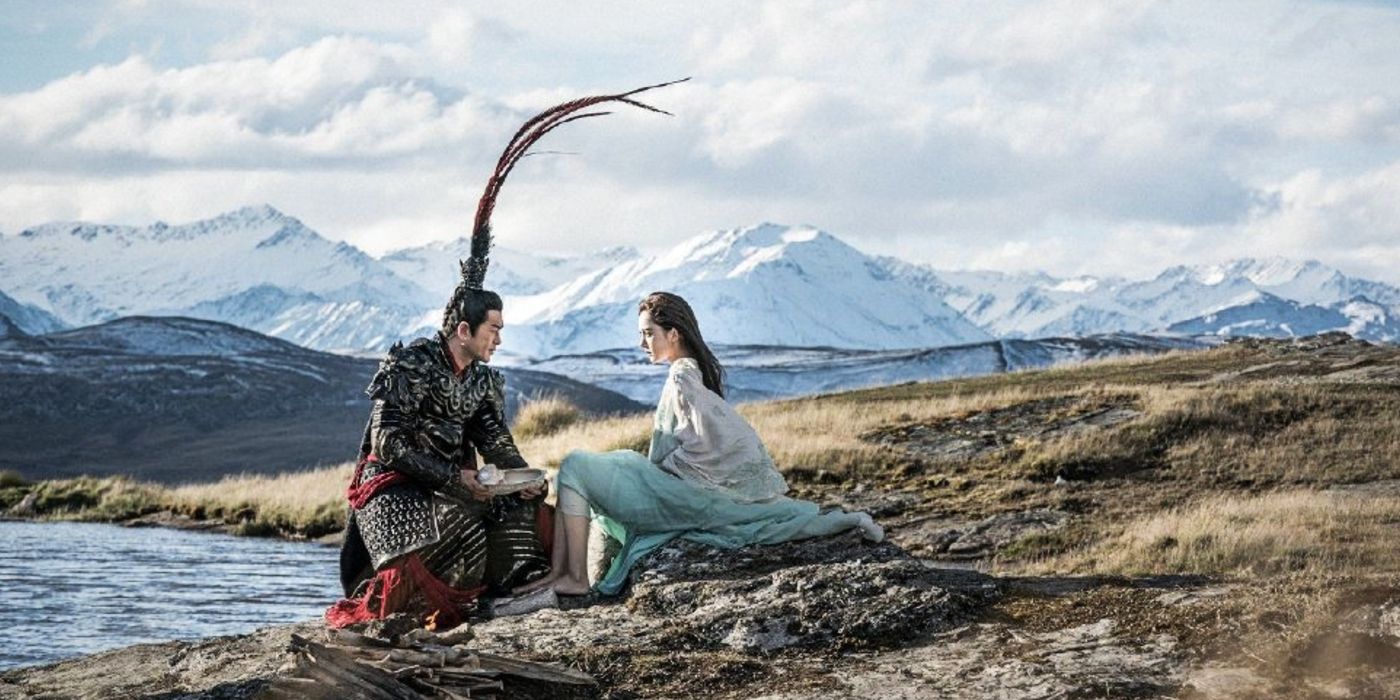
Netflix’s latest adaptation of the popular hack and slash action game series, Dynasty Warriors, sports some pretty big differences when compared to the game. Developed by Omega Force and published by Koei Tecmo, the Dynasty Warriors games hinge their narratorial trajectory on the 3rd-century historical text, Romance of the Three Kingdoms, chronicling the final years of the Han Dynasty. While the Netflix adaptation does attempt to translate the in-game lore to the big screen, there are some key differences that inevitably creep in.
Directed by Nightfall’s Roy Hin Yeung Chow, Dynasty Warriors stars Louis Koo as General Lu Bu, infamous for his penchant for betrayals and plans to establish himself as an independent power against Cao Cao’s (Wang Kai) forces. The live-action film also focuses on the valiant Guan Yu (Han Geng) and the self-proclaimed Shu Emperor, Liu Bei (Tony Yang). In order to convey the overarching vibe of the popular video game series, the film employs over-the-top action sequences, giant armies, ridiculous offense moves, and heavy metal guitar riffs within its framework.
Interestingly, Dynasty Warriors opens with a battle that seems to be taken straight out of the games. Liu Bei, Zhang Fei (Justin Cheung), and Guan Yu arrive on the scene, and take out entire battalions in over-the-top fashion, making people literally fly across the battlefield. This echoes the flashy special effects of the games over the years, further accentuated by the choice of soundtrack embedded within the sequences. Here are some of the biggest differences between the original games and the Netflix adaptation.

Dynasty Warriors has always had an extensive in-game lore, one that primarily revolved around the Wei, Wu, and Shu kingdoms, along with other, unaffiliated factions making key appearances. This potentially paves the way for an incredible, backstory-rich adaptation, one that is supplemented with grand, sweeping action sequences that mirror the ones in the beloved games. However, Netflix’s Dynasty Warriors keeps its focus frenetic and limited, missing out completely on the opportunity to capitalize and expand upon the game’s immense historical depth. Instead, the adaptation focuses on how the three heroes in the opening sequence are drawn together by loyalty to the Han dynasty, working together to restore the child emperor Liu Bian after he is dethroned by the Machiavellian Dong Zhuo (Suet Lam).
This narrative decision not only is a massive missed opportunity but also makes it difficult for first-time viewers of the franchise to immerse themselves into its worldbuilding. While every adaptation demands a certain amount of prior knowledge and understanding from its audiences, Netflix’s Dynasty Warriors expects a whole lot of filling the gaps from the viewers’ end. Needless to say, this hampers the respective backstories of the heroes in question, as they are not furnished with personal depth or motivation of any kind. Unfortunately, only long-time fans of the franchise or players with middling to sufficient knowledge of the game’s lore will be able to completely grasp the full scope and ambit of the historical saga.

As a long-running franchise, Dynasty Warriors has come a long way, especially in terms of graphics and in-game immersiveness. The first game did not look very different from Street Fighter, as players could simply choose characters and have one-on-one fights. However, from Dynasty Warriors 2 onward, players could participate in battles of the Three Kingdoms, and immerse themselves into a cohesive storyline, while later games switched to third-person storytelling with nuanced narrative branches. From a longtime fan’s perspective, much of the adaptation’s narrative arcs are going to make sense, but the lack of proper exposition and the creative decision to follow through hampers the storyline in massive ways.
Why, for instance, does the most formidable fighter in Dong Zhuo’s army, Lu Bu, fall in love with his commander’s unknown lover, Diao Chan? While players will be aware of Diao Chan’s origin story, which varies greatly due to its open nature, uninitiated viewers might have a hard time making sense of this particular development. Also, what is the purpose of the mystical magical weapons granted to the titular trio by the Master of the Sword Forge Castle (Carina Lau)? To be presented with weapons of mystical power seems to be a pretty seminal plot point, one that is never revisited ever again or employed practically in any shape or form. In absence of narrative sense, the film makes up for its lost splendor via its chaotic and flamboyant special effects.
All in all, Netflix’s Dynasty Warriors follows the original game series closely in terms of style and aesthetics but departs significantly in terms of narrative depth and character development. One might argue that the adaptation attempts to emulate the games a little too closely, underestimating the power of the visual medium and the innate differences in terms of artistic ingenuity and translatability. However, if one simply wishes to savor epic battle sequences reminiscent of Rurouni Kenshin: The Final and The Yin-Yang Master: Dream of Eternity, Dynasty Warriors can be pretty entertaining to watch. Some sequences, in particular, are especially thrilling to watch, such as the one in which Cao Cao escapes the royal court atop his horse across the tile rooftops, skidding to a halt near a forest and surviving an avalanche.
https://ift.tt/3hvy3xO
July 04, 2021 at 12:42AM




